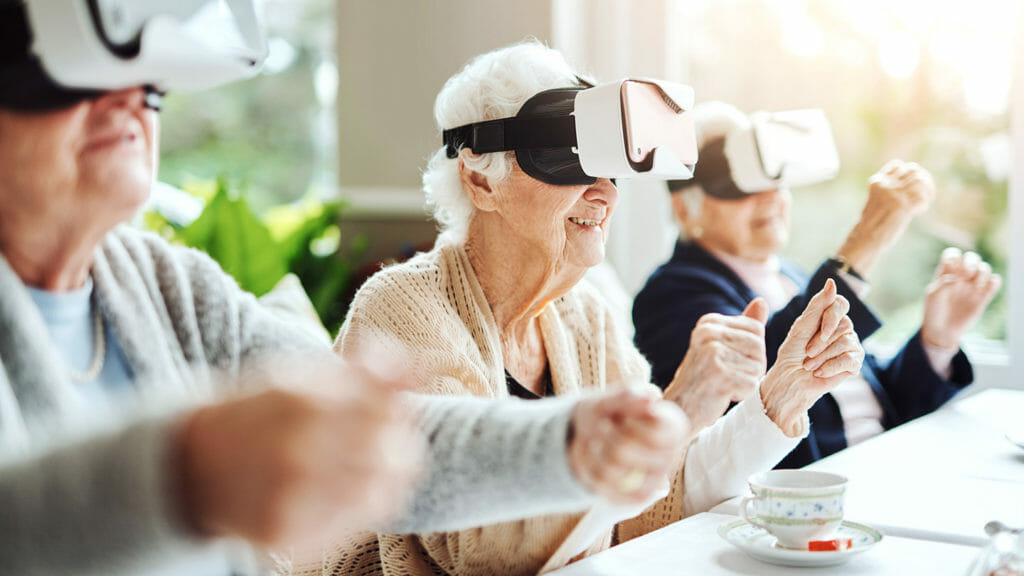
Although virtual reality systems often are seen as solitary entertainment in a fabricated world, the use of VR systems in senior living appears to motivate people to interact and socialize more vibrantly with elements of the real world, a new study shows.
Older adults who used a VR program that involved walking around a cityscape ended up being more active, both physically and socially, even if the VR itself didn’t involve social interaction, the study found.
Most senior living and care providers play up the socializing benefits of living in their communities for residents, but nevertheless residents may struggle with the major life change constituted by moving from different communities or having already faced isolation due to the deaths of friends and family.
In addition, many older adults who have needs for specialized care, such as for dementia, sadly are isolated by their conditions.
“This result is really interesting because positive impacts exist even if the time spent to use the [immersive rirtual reality] decreased,” the study authors noted. “If the IVR led to reduced loneliness, it is probably because physical activity created opportunities to meet people in the real/physical world, that is being an indirect effect of the IVR.”
The VR citywalk was one of two dual studies conducted by the researchers. The first study was comparative and tried to find a baseline evaluation and acceptance of VR among older adults. It found that seniors significantly prefer VR compared with wearables such as smartwatches.
Interestingly, one of the main reasons the study participants said they were more accepting of VR tech was that they believed that it was less intrusive to their privacy than wearables — despite the fact that many VR tools can and do collect a variety of data, and some clinical-VR programs are now being used exclusively for the purpose of collected better diagnostics.
The conclusion that VR is, often indirectly, improving social ties for senior living residents dovetails with another recent study that indicates that using some VR can help enhance the relationship between older adults and their immediate caregivers, the McKnight’s Tech Daily recently reported.


